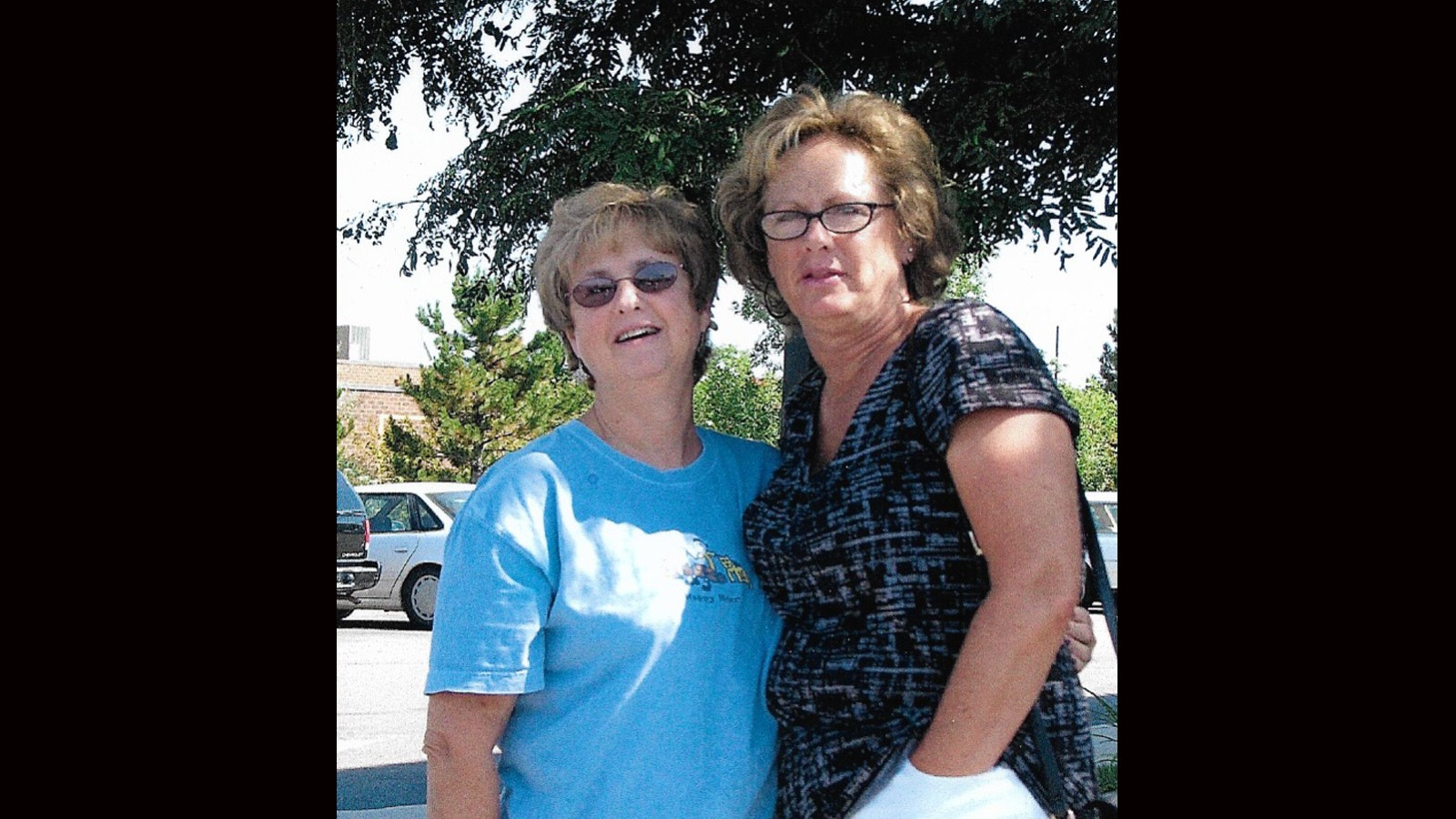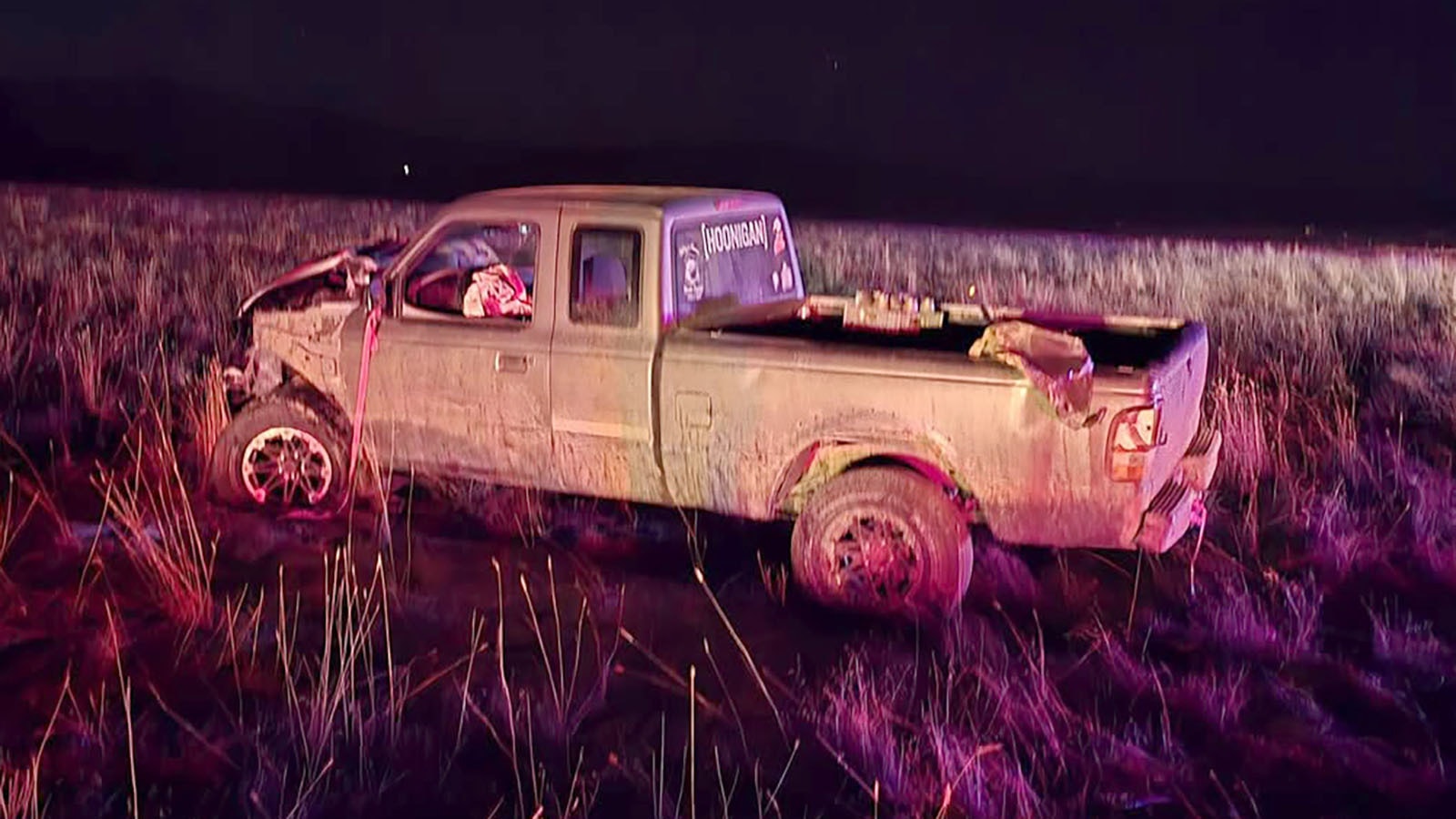Without realizing it, 58-year-old Yvonne “Vonnie” Flores caught the attention of her neighbor. The man, 58-year-old Anthony Medina, lived next door to Vonnie and her husband and two kids in Leadville, Colorado.
Medina and his elderly mother lived in a two-story home that gave Medina plenty of opportunities to spy on Vonnie. He’d watch her while she was working in the yard or sitting on her deck. Sometimes, he followed her through the neighborhood when she walked or went on bike rides.
Once, according to Vonnie’s younger sister, Casper resident Vicki Kadlick, Medina followed Vonnie and her husband Dave on a shopping trip to nearby Frisco, nearly 30 miles away.
Medina’s obsession with Vonnie went on for more than five years, Kadlick said. It ended with Vonnie’s death, a catalyst for Kadlick’s efforts to strengthen stalking laws in both Wyoming and Colorado.
The stalking started with a proposition to Vonnie, when Medina called her over to his yard one day to make his romantic interest clear. Vonnie rebuked his advances, explaining she was happily married and wanted nothing to do with him.
When Vonnie’s husband Dave got home later that day, he went over to tell his neighbor not to approach his wife again. Medina filed a police report after Dave’s visit, but no charges were filed.
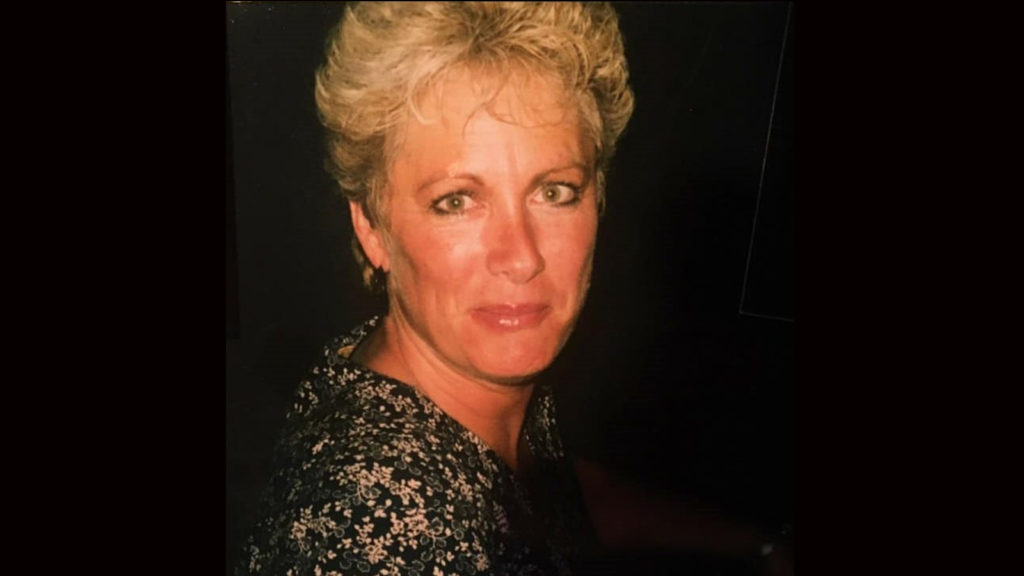
Vonnie, meanwhile, blew it all off, despite warnings from her husband and family. She joked about her crazy neighbor stalker, making light of the situation because she considered the whole thing annoying but harmless.
That changed for Vonnie one day while out on a bike ride on a quiet road outside of town. She was pushing her bike up a hill when she saw Medina ahead of her on the road, walking toward her. She immediately turned her bike around and pedaled straight to the police station to file a report.
Medina was arrested later that day and released within three hours on a $2,500 bond. A court also issued a temporary restraining order requiring him to stay at least 10 feet away from Vonnie, with a court date set for two weeks later.
This is when Vonnie began to understand the gravity of the situation. Kadlick flew from Casper to Leadville in an attempt to convince her terrified sister to visit Wyoming.
Kadlick remembered how terrified her sister was at that point. One night, when she suggested the pair sit in the back yard and enjoy the evening, Vonnie shook her head and nodded in Medina’s direction.
“She was terrorized,” Kadlick said. “She was afraid to even be in the house.”
That Thursday, four days before Medina was scheduled to appear in court, Vonnie decided to run a quick errand to the drug store. She’d only be a minute, she reasoned, and her family was home.
When Vonnie returned, she was not even out of her car when Medina met her in the driveway, shooting her in the head and chest before turning the gun on himself in a murder suicide.
Justice For Vonnie
Kadlick was devastated by her sister’s death and decided, with the help of her family, to find justice for Vonnie.
She talked to everyone involved in stalking cases from law enforcement officers and mental health experts to lawyers and judges to determine what could be legally done to prevent this from happening to anyone else’s loved one.
A few flaws in the system were immediately apparent, beginning with law enforcement’s response to Vonnie’s stalker. One police officer warned her to stay away from Medina, who he thought was a little crazy. But short of the family moving, police had little advice to give.
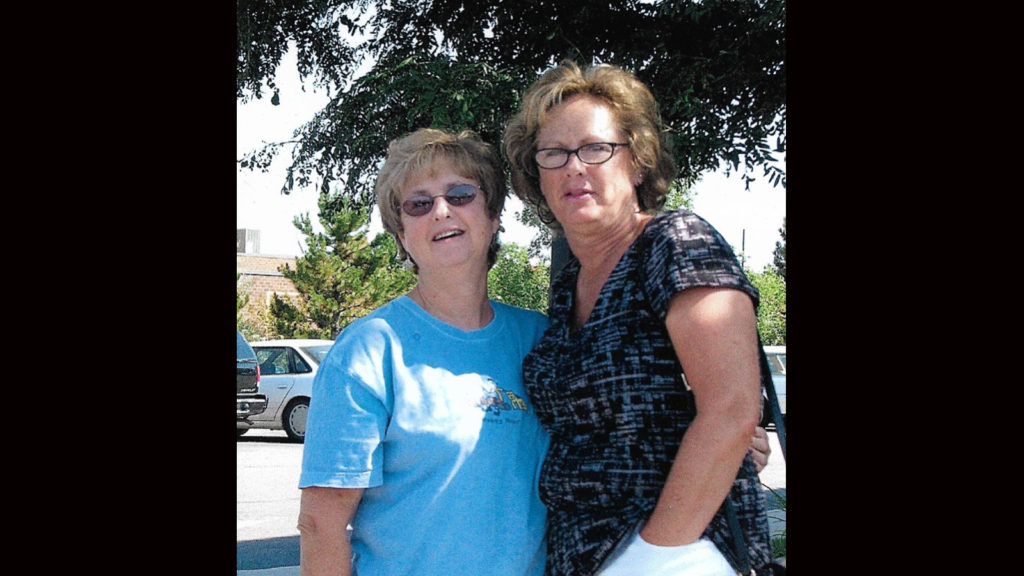
Also troubling to Kadlick was the fact that her sister blew off Medina’s behavior at first because she never imagined that he was so dangerous.
Ultimately, the one variable that might have saved her sister, Kadlick found, was changing laws in Colorado to deter perpetrators from stalking their victims.
Two years later, “Vonnie’s Law” was passed in Colorado in 2012 making it mandatory for suspects arrested on stalking charges to appear before a judge prior to posting bail. During this period, the suspect has to remain in custody and stay away from the alleged victims.
Kadlick wanted to see the same changes made in Wyoming’s stalking laws, which back then had hole similar to Colorado’s.
Bulldogs For Justice
Using the Colorado bill as her guide, Kadlick began making contacts in Casper. She reached out to Lorrie Anderson, victim services coordinator for Natrona County Sheriff’s Office, who shared her passion for getting laws changed.
As Kadlick soon learned, there were more people supporting her cause, including Sen. Bill Landen, R-Casper, who sponsored the first and most recent bills tightening Wyoming’s stalking laws.
Taylor Courtney, now investigations sergeant with Natrona County Sheriff, was compelled by Kadlick’s story and passion to help with the effort to draft the new laws.
Paramount to their efforts was strengthening protective orders to make them easier for police to enforce. Statistically speaking, Kadlick said that 60% of stalkers will stop if they get into trouble for it.
“They (protective orders) weren’t working,” Kadlick said. “They were just a piece of paper. We wanted something with some teeth in it.”
They also wanted a better definition of the nature of stalking as well as harsher penalties for repeat offenders, including possible felony charges filed in the case of repeated violations.
It took the group six years and a couple failed attempts to get stronger stalking legislation passed. In 2018, former Gov. Matt Mead signed House Bill 8 with several key elements that clarified the crime of stalking, increased jail time from six months to a year while also increasing probation from one to three years to allow for counseling if needed.
The law also made subsequent stalking offenses a felony if an offender had a second violation within five years of the prior offense. It also extended the duration of protective orders.
Before the new law was passed, protective orders were only good for six months, at which point the victim had to go back in front of a judge and the perpetrator to get it renewed. This new law made the orders good for three years.
What Courtney liked about the new legislation, too, was that it is intended to help both the victim and the perpetrator by including a counseling component.
“The system has to be designed to provide relief to the victim, so they feel safe and can lead a normal life. Somebody has done this to them, and we’re going to help them make it right,” he said. “But, the beautiful part about this (law) is that it also addressed the offender as well through additional probation, which allows for more effective and longer treatment to change stalking behaviors and reduce reoffending.”
The other important aspect was a clarification of what constitutes stalking, an effort to make the victim more aware of what is happening, Courtney said.
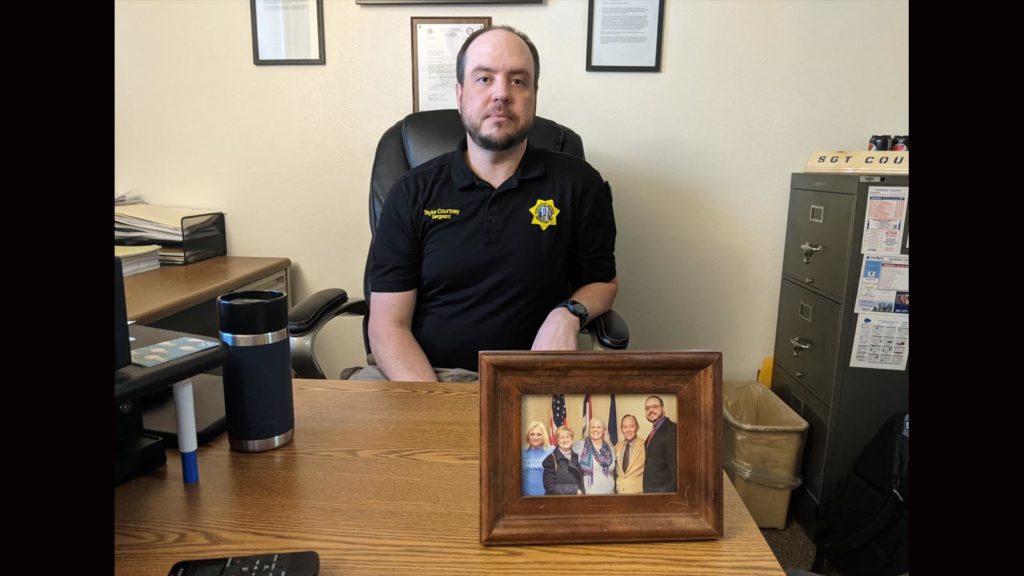
“Stalking requires a course of conduct with the intent to harass, so being able to properly identify it, what it looks like and how it’s actually taking place was key in being able to hold offenders accountable,” he said.
Under Wyoming law, a person can be charged with stalking for harassing someone to the point where they feel emotional distress, fear for their safety or someone else’s safety or for the safety of their property. This might include verbally harassing them, following or watching them at home, school or work, or in more recent years, stalking them through electronic devices.
The issue of electronic stalking was not addressed in the 2018 bill and left a gaping hole for perpetrators to exploit, Courtney said, whether by hacking into email, social media and other accounts, monitoring a victim’s movement with global positioning software (GPS) or tracking “tiles” like Apple AirTags.
AirTags are typically used to help people track personal items such as keys, wallets, purses in backpacks. But stalkers are sticking them onto the victim’s car or other belongings and using them to track the victims from the comfort of their homes.
Stalkers are also using the internet as an educational tool, according to Rawlins-based clinical social worker and therapist Sheryl Foland. In her March 7 testimony to the House Judiciary Committee, Foland said offenders are honing their tricks online from experts.
“They are assisted, as I learned last week, with some awesome Facebook groups, Instagram communications and some other dark web places on how to stalk, and that is literally the names of the groups,” she said.
The prevalence of stalkers operating in this venue, Courtney said, is why he, and Tara Muir, with the Wyoming Coalition Against Domestic Violence, and others in the law enforcement, counseling and victims’ services community approached Landen with this new bill to address the new venue.
The bill, Senate File 100 was signed into law by Gov. Mark Gordon on Monday with the new law to take effect on July 1, 2022.
Stalking Is Not Love
With new legislation in place, advocates like Kadlick continue pushing for accountability and helping victims understand the nature of stalking and its potential ramifications.
In this regard, Kadlick continues to be alarmed when she talks to victims – who are primarily female – who don’t consider themselves to be victims at the time the stalking occurs.
“These women don’t know what to do, and you don’t know how serious it is until it’s too late,” she said.
She recalled one young woman downplaying the fact her stalker — who had a protective order against him — brazenly left a bag of groceries on her front porch. The victim thought that was nice of him and didn’t seem bothered by the fact that he had broken the law.
“It’s not a nice thing to do,” she said. “It’s not flattery, it’s stalking. Many young girls seem to think it’s cool that the guy really likes her.”
According to the National Center for Victims of Crime (NCVC), more than 6 million people are stalked every year, including one in six women and one in 19 men. This same data shows that 66% of female victims and 41% males are stalked by a current or former intimate partner.
For Kadlick, the advocacy is personal and one way in which she deals with the grief of losing her older sister.
Vonnie worked as a teacher’s assistant at a Leadville elementary school after obtaining her GED and finishing subsequent college courses at age 40 and was an avid outdoors enthusiast with a big heart and contagious personality, she said.
“My sister was an absolute force and had such a light that attracted everyone, and he (Medina) saw that and wanted it,” Kadlick said. “Grief can eat you whole if you let it. This is my way of keeping my sister close.”
Vicki also administers the Vonnie’s Voice Facebook page

